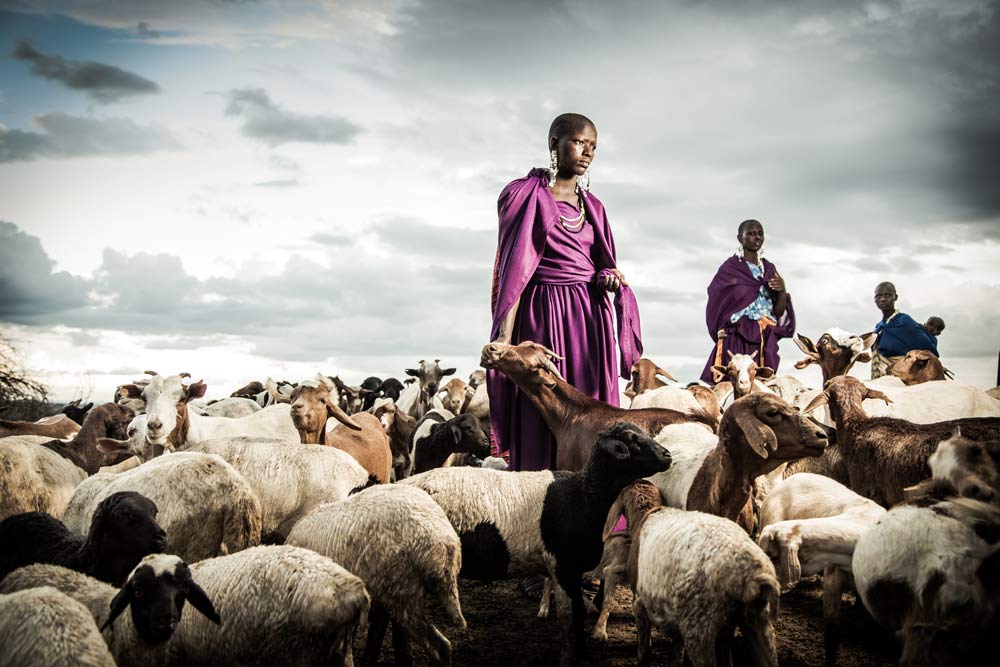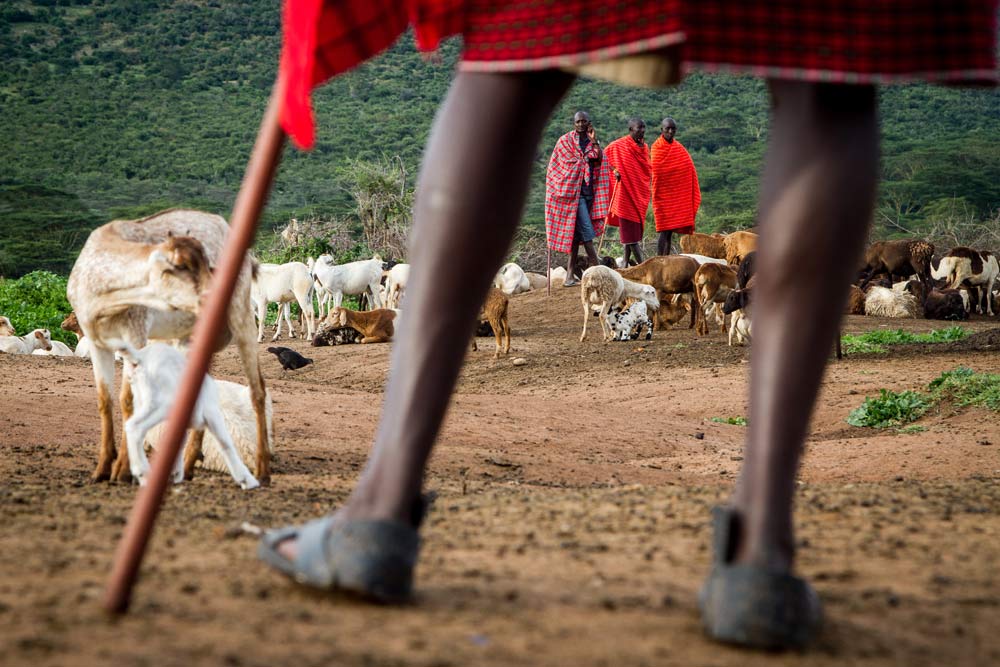It’s one of Kenya’s most iconic images. The Maasai warrior, spear in hand, scarlet shuka cloak thrown over his shoulder, one leg raised to rest on the other and his gaze turned to the far horizon. Certainly the most visually striking of the many colourful tribes of Kenya, the Nilo-Hamitic Maasai are a nomadic people whose way of life has remained unchanged for centuries and is still dictated by the constant quest for water and grazing land for their cattle.

Maasai and their cattle
Called ‘Maasai’ after their language, ‘Maa’, the Maasai are renowned for their bravery. They are also distinguished by their complex character, good manners, impressive presence and almost mystical love of their cattle. ‘I hope your cattle are well’ is still the most common form of Maasai greeting, whilst milk and blood remains the traditional Maasai diet. Cowhides provide basic necessities such as mattresses, live cattle establish marriage bonds, and a complex system of cattle-fines maintains social harmony.
Adapting to change
Thought to have migrated to Kenya from the lower valleys of the Nile, the Maasai encountered a troubled history in their adopted home. Firstly their people were decimated by famine and disease; secondly they lost many of their cattle to the scourge of rinderpest; thirdly their development was affected by the arrival of the European explorers; and, finally, they lost much of their land to the British settlers. Nor did their dispossession end there. In recent years they have also had to endure the steady shrinkage of their ancestral lands thanks to urban expansion and the establishment of Kenya’s National Parks and Reserves.
Undeterred, however, the Maasai have risen to the challenge. Many have entered into cooperative ventures with the tourism industry and created conservancies on their land. And, rather than killing lions, as was the custom of the young warriors of the past, the morans of today are actively engaged in protecting them. Some things, however, never change – such as the Maasai love of their cattle. No matter how large the herd, each cow will have a name and a lineage. And only in the harshest of circumstances will a Maasai part with a single animal.

The tale of Maasinta
So why do the Maasai love their cattle so dearly? Perhaps the best explanation is given by the Maasai themselves in the following folk tale.
In the beginning, the Maasai did not have any cattle. Then one day God called to Maasinta, who was the first Maasai, and said to him, ‘I want you to make a large enclosure, and when you have done so, come back and inform me’. Maasinta went and did as he was instructed. Then, God said, ‘tomorrow, very early in the morning, go and stand in the enclosure and I will give you something called cattle. But keep very silent no matter what you might see or hear.’
Very early in the morning, Maasinta went to the enclosure and waited.
Suddenly there was a great clap of thunder and a leather thong descended from heaven. Down it descended hundreds of cattle in all the shades of brown and black – some with great horns, others with velvet dewlaps. Meanwhile the earth shook so violently that Maasinta’s house nearly fell over and he was gripped with tremendous fear, but he did not make a sound.
It was at this moment that Dorobo, who shared the house with Maasinta, woke from his sleep and went outside. There, seeing the cattle descending down the leather thong, he let out a great shriek.
Immediately God withdrew the thong into heaven and, thinking that it was Maasinta who had shrieked, He said to him, ‘what’s the matter? Are these cattle not enough for you? If that is the case, I will never send any more – so you had better love these cattle in the same way that I love you.’
And so, according to legend, that is why the Maasai love their cattle so much.
This folk tale has been adapted from Naomi Kipury’s Oral Literature of the Maasai and Kenyan Oral Narratives by K. Adagala and W. Kabira.
© 2025 Kenya Holidays
